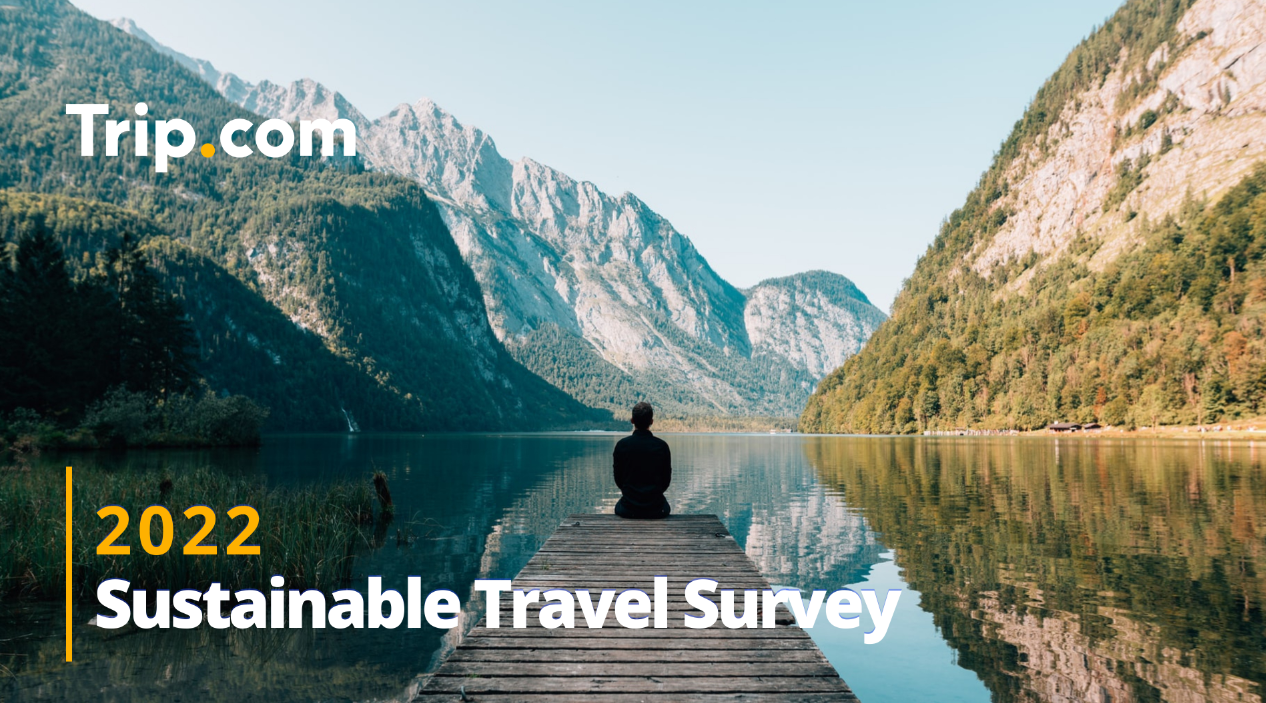
Fuelled by a desire to balance the needs of the planet and the global economy, sustainable travel is gaining momentum among eco-conscious consumers. On a global level, the UN’s 2030 Agenda for Sustainable Development SDG target 8.9, aims to “by 2030, devise and implement policies to promote sustainable tourism that creates jobs and promotes local culture and products”.
As a brand that has been committed to sustainability practices for years, Trip.com wants to be part of the solution and to provide customers with sustainable travel options to satisfy demand. As part of a longer-term plan comprising environmentally focused campaigns and incentives that will be launched on the Trip.com site ahead of World Environment Day, Trip.com also conducted a survey among its customers to find out more about their sentiments towards sustainable travel and how the pandemic has impacted these opinions. Crucially, the survey revealed that travelling sustainably is important to 90% of respondents.
With plans advancing for a larger survey in the coming months, our initial findings support the view that sustainable travel is high on the agenda for global consumers, and detail what respondents believe online travel platforms can do to improve their sustainability efforts.
The pandemic highlighted the importance of sustainable travel for many
From the results of our initial survey, 79% of respondents believe that the pandemic affected their attitudes towards sustainable travel. Respondents felt that lockdown in particular heightened their appreciation of nature and green spaces, encouraged their desire for local travel and inspired an increased awareness of their place in the community.
Understanding the scope of sustainable travel
Our initial findings suggest that, generally speaking, respondents tend to emphasise the environmental aspects of sustainable travel (including carbon-offsetting) but a shift is occurring. More than half of respondents now recognise that sustainable travel goes beyond purely environmental concerns, with the economic and socio-cultural aspects of sustainable tourism, and its development, also being factors to consider.
Our users are also becoming more aware of their responsibilities to travel more sustainably. Our initial findings show that most respondents believe that a commitment to sustainable tourism should be shared equally by travellers, the travel industry and governments themselves.
Sustainable travel in practice
When asked how they would like to travel more sustainably, respondents highlighted local travel and staycations, environmentally friendly transportation (including using public transport, walking or cycling instead of flying) and travel which is culturally respectful (of local traditions and heritage, for example). Our survey also highlighted that a respondent’s willingness to travel more sustainably appears to correlate with the level of convenience and the price the traveller is willing to pay.
Barriers to sustainable travel were discussed, with respondents highlighting that the accessibility of sustainable travel products appears to be the biggest issue. Most respondents believe that sustainable travel options aren’t clearly labelled, so they aren’t easily able to locate these options when choosing a travel product; and that sustainable travel options are lacking in general, with the products that are available potentially being unreliable. Now more than ever, travellers want to know that any sustainable travel product they invest in is truly effective in helping to build a sustainable world.
Finally, we asked respondents how OTAs can make travel more sustainable, with suggestions focusing on labelling sustainable travel products clearly and providing added incentives to customers for travelling sustainably. Respondents also proposed that OTAs financially support any key business partners to encourage them to take up sustainable practices.
With a host of plans in the pipeline, watch this space for more information on Trip.com’s upcoming sustainability initiatives and our follow-up survey.